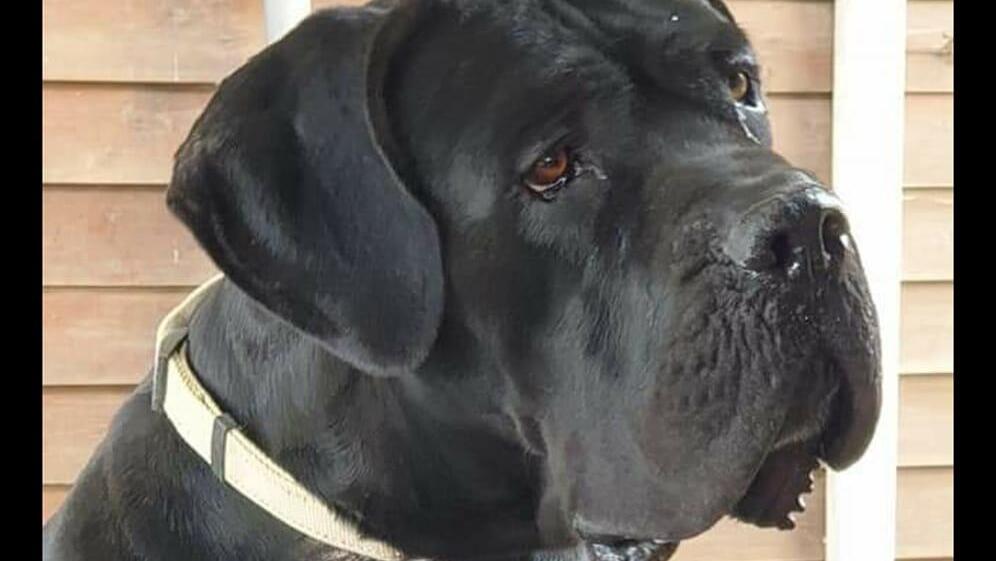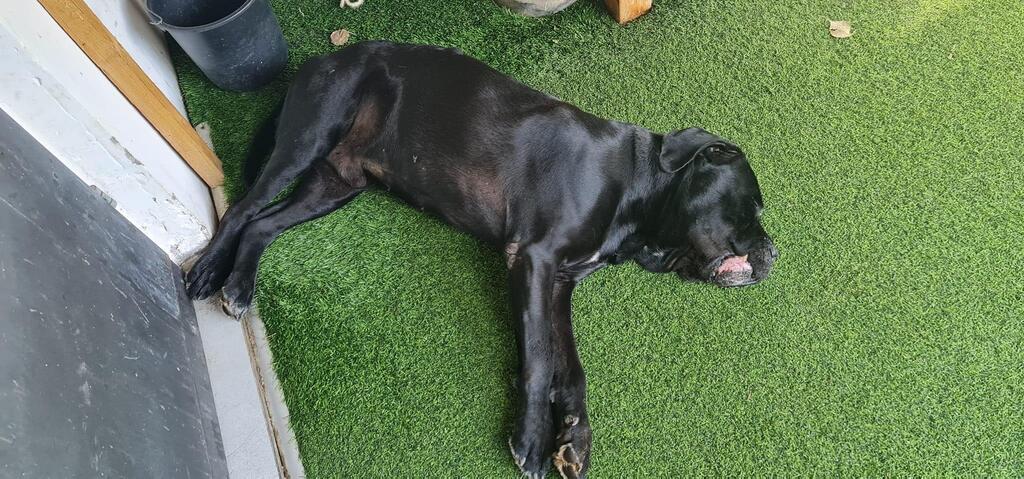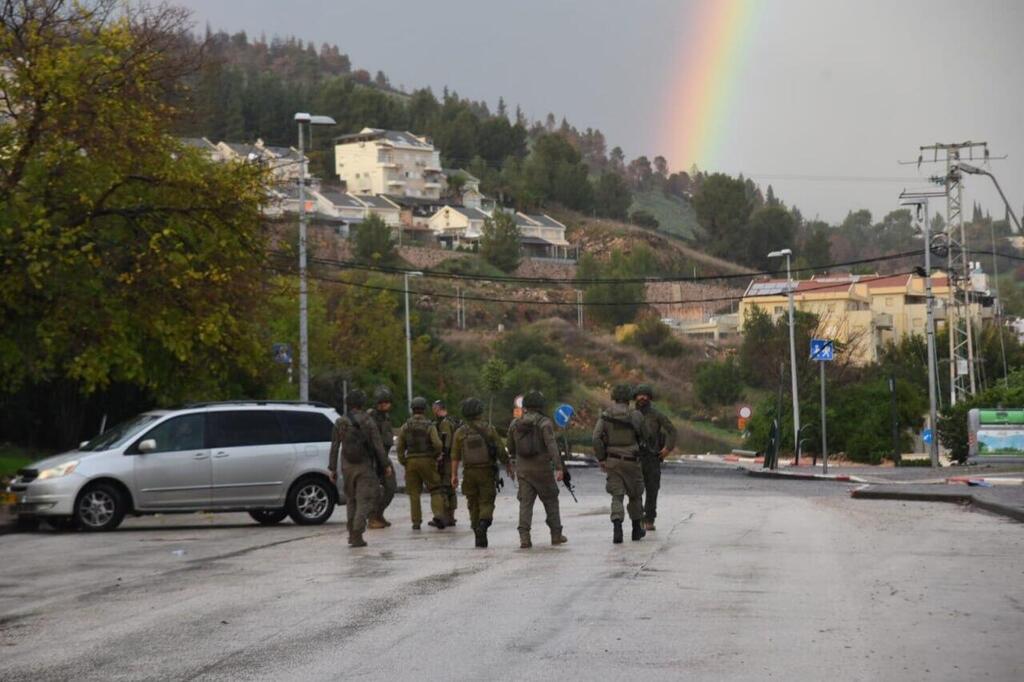Getting your Trinity Audio player ready...
The Sela family was evacuated from their home about three months ago, along with most of the residents of Kiryat Shmona, as Hezbollah continues to fire at Israeli communities on the Lebanon border. However, the hotel they moved to did not agree to accommodate Dominic, the family's large and lovable Cane Corso dog.
Read more:
Dominic had to stay at home near the northern border and the family's father Rotem to make the long journey home to provide for his care. Tragically, during one of Hezbollah's rocket attacks on the city, the beloved dog died of a cardiac arrest.
The war caught Rotem Sela, videographer and crane business owner from Kiryat Shmona, in a very unpleasant situation. Amid rocket fire and warnings of hostile aircraft infiltrations he, his wife and two children evacuated to a hotel. "We were not allowed to bring the dog to the hotel. He is very large and weighs almost 70 kilograms," said Sela.
Sela shared that the family adopted Dominic at a month old and he was eight years old at his passing. "We live in a private house in the neighborhood on Ramim Ridge, and Dom used to live in the garden," said Sela. "He had a huge yard and he used to walk around it freely. He was a wonderful dog and our children loved him very much. He had a kind heart, he also got along with our cats."
To Sela, Dominic was a part of the family. "We would take him everywhere we went. He was a very homely dog, but he also really liked to walk in nature and the children would play with him, ride him and bathe him in the small pool in the garden. In addition, he was also a faithful guard dog and would keep jackals and foxes away from our yard. Because of his size, he was very well known in the neighborhood, a kind of celebrity, and all the kids on our street loved him."
Sela said that he stayed at home with Dominic and the cats he was raising. "I stayed at home because I work in the news and film all the events. Also because I have a crane business that needs to be operated, but the main reason I stayed was that I raise pets at home and they need daily attention," he said. "I lived alone in the house with Dom for a long time, he was terribly scared of all the explosions, the artillery and the sirens."
5 View gallery
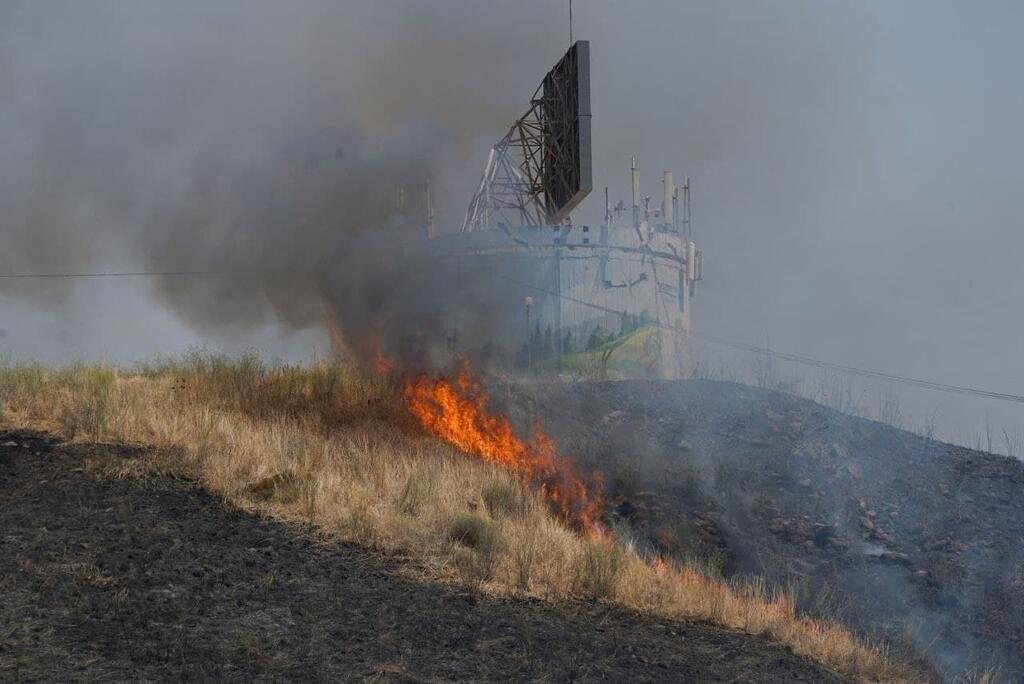

Hezbollah rockets make it impossible for Israelis to live in the north
(Photo: Effi Sharir)
He said that in one case, a rocket exploded a few hundred feet from home. "It happened when we were outside together. I just watered the garden. It was very stressful, I've never seen Dom behave like this: howling in fear, cowering on the floor, lowering his head, closing his eyes, crying and also peeing on himself, just like a scared child," recounted Sela. "When the sirens blared, I would bring him into the house and pet him, and then he would calm down. But after three months, I also decided to evacuate as the only resident of the neighborhood left."
In order to be close to his abandoned house in Kiryat Shmona and the family pets, Sela had no choice but to rent a hotel room in Tiberias and travel north to feed the beloved family pets.
"For the past two weeks, I would go up to Kiryat Shmona at least once a day to feed Dom, and there were also days I would come twice a day," he said. "This is a real life risk, since we live on a high ridge and there are many rockets and mortars without alarms. Last Thursday, I brought leftover meat and all kinds of good things from the hotel. He would always hear my car and run to me. That day he did not come. I called him and I went to look for him with the lunch bag in hand and I didn't find him."
Then he went through a horrifying experience. "I saw him lying in front of the house as if he had gone to sleep," he said in pain. "He wasn't injured and he wasn't bleeding. He didn't seem to have been bitten by a snake. At first, I thought he was asleep and I called him 'Dom!' Then I realized that something was wrong. I got down on my knees, I started to pet him while I was crying, and the tears poured from my eyes like a child. I realized that he must have had a heart attack from fear. I sat on the floor for at least ten minutes, touching him, petting him, and during that time there were crazy explosions all around and the sirens began."
At this point, Sela decided to bury his beloved dog. "Cana Corso is a huge dog, which is very difficult to pick up and carry to burial," he said. "I was alone on the mountain with a dead dog, and I told myself that if I get hit, nobody will find me. After I finished burying him, I was mentally and physically exhausted. I returned home to change clothes and went back to the hotel in Tiberias."
After arriving in Tiberias, he announced the bitter news to his children. "I called and told the children that he probably died at night from a heart attack, he went to sleep and he didn't suffer," said Sela in pain. "It was a very painful trauma for the children and I had to cushion the blow for them. I showed my eldest son a picture I had taken of him lying dead at the entrance to the house. After we finished the call he called me again and asked me 'Dad, are you sure he's dead?' He had a hard time believing it and asked me to check again, it took him a while to come to terms."
The cats were also affected by the fighting. "Our five permanent cats are alive," he said. "We recently had a litter of seven kittens in the garden. Probably due to the fear of the bombings, the mother did not produce milk and the kittens did not survive. Domestic cats who are taken care of will survive, but there is a serious problem with the street cats of Kiryat Shmona."
5 View gallery
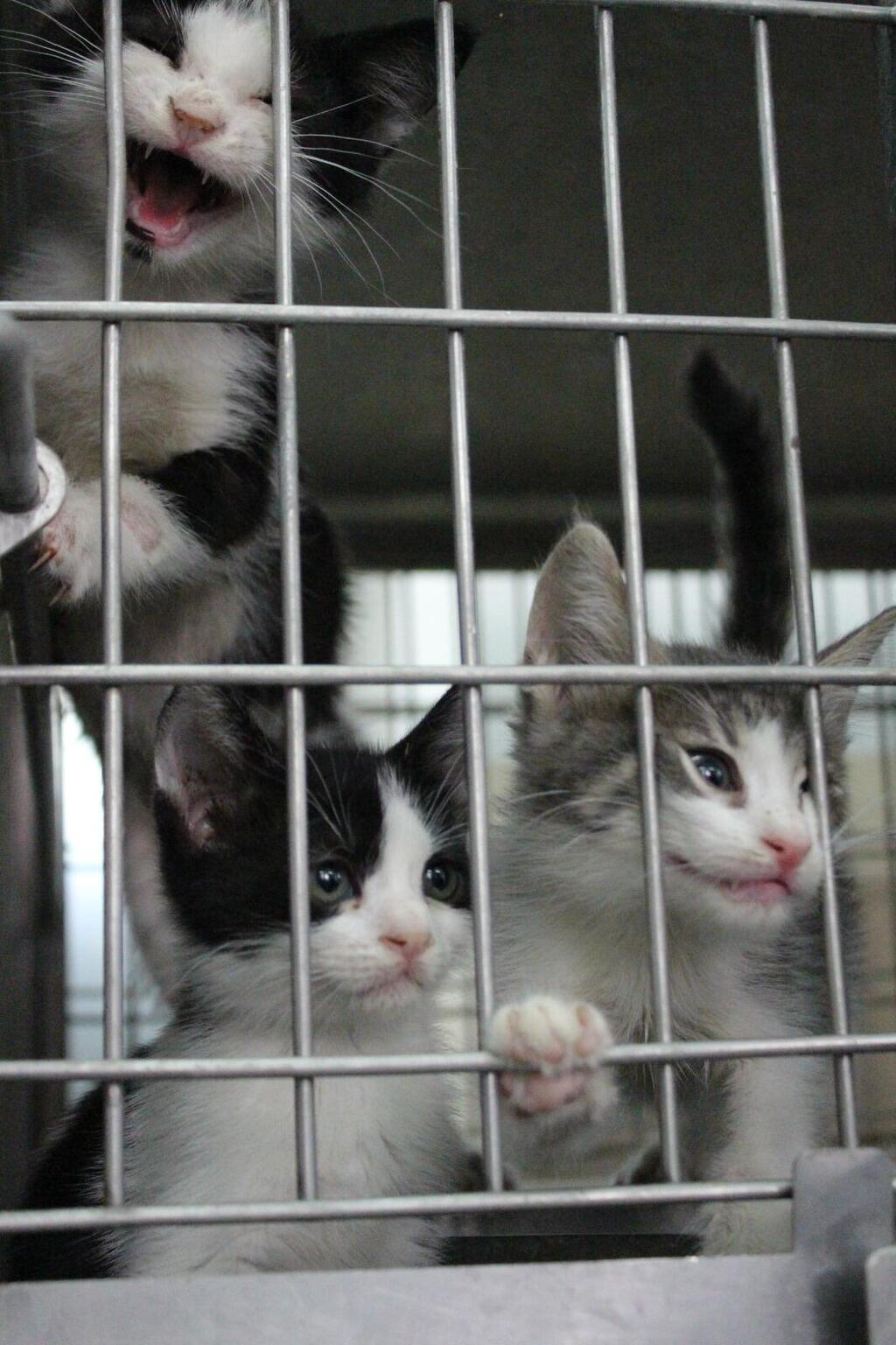

Kiryat Shmona's cat population becoming feral due to war
(Photo: Jerusalem Veterinary Service)
"The city is abandoned so they have no food and they coalesce into starving feral packs of 20-30 cats. I walk around the city at night and feed them. There are other people like me who volunteer to feed cats, but it's not enough. It's been three months of war and some of the volunteers had to evacuate to safety," he added.
Sela says that he does not know when he will be able to return home. "People are going crazy in hotels and no one knows when we will return home, not even the government," he said. "We live in a state of uncertainty. Compared to the south, not much happens in the north, everyone is shooting at everyone. It is a war of attrition and it is not easy to live in a hotel for three months without knowing when you will return home."



